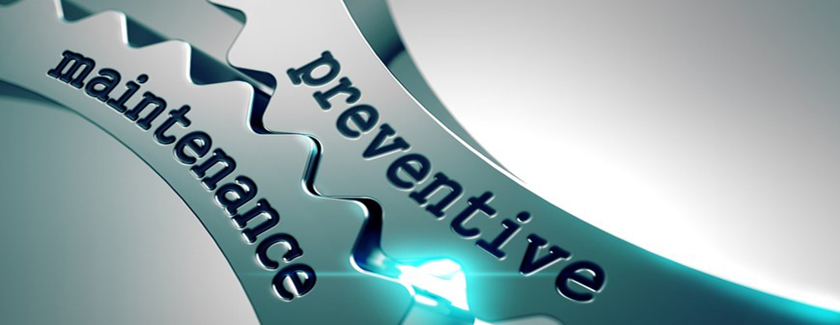Preventive Management
Contact us

Preventive Management
Preventive maintenance is a popular system that many businesses, companies, and organizations use to schedule particular maintenance tasks that help assets, machinery, and other equipment stay in good, working condition. Tasks are usually scheduled based on time or equipment usage. For example, one machine may require lubrication for every 100 hours of operation while another asset may require an inspection or tune-up on an annual basis. Maintenance checklists are often a critical part of a solid preventive maintenance program.
Preventive maintenance is an important part of facilities management. The goal of a successful preventive maintenance program is to establish consistent practices designed to improve the performance and safety of the equipment at your property.
Moreover, the planned maintenance of equipment will help to improve equipment life and avoid any unplanned maintenance activity. A successful preventive maintenance program is dependent on the cooperation of all the parties involved. Engineering managers must rely on the knowledge, ideas, and contributions of all the maintenance personnel at the property.
Unfortunately, the implementation of a preventive maintenance program can be time consuming and costly. This creates constant debate as to whether a preventive maintenance program is worth installing. Will all the man hours and money invested in the program outweigh emergency repairs? From our years of experience, we believe that when the program is properly operated the benefits exceed the costs.
Here are other important benefits of a properly operated preventive maintenance program:
1. Equipment downtime is decreased and the number of major repairs are reduced
2. Better conservation of assets and increased life expectancy of assets, thereby eliminating premature replacement of machinery and equipment
3. Reduced overtime costs and more economical use of maintenance workers due to working on a scheduled basis instead of a crash basis to repair breakdowns
4. Timely, routine repairs circumvent fewer large-scale repairs
5. Improved safety and quality conditions for everyone
We focus on the customer first regardless of size at CMS. As an example, our preventive maintenance program is set up to benefit the customer. Many of our competitors are much more interested in repairing or replacing a piece of equipment instead of extending the life of this asset. The cost (and profit) in unnecessary repairs can escalate quickly. When we are entrusted with a client’s infrastructure, we endeavor to preserve that asset through a comprehensive preventative maintenance program. Our technology platforms are state-of-the-art, including real-time, web-based preventive maintenance and work order systems designed to bring value to our customers.
This integrated approach to support will significantly reduce the administrative workload allowing our management staff to focus on maintaining and protecting our clients’ assets. Our client and operations services help sites develop and implement beneficial preventive maintenance programs by creating a database of equipment and scheduling procedures to service these assets. We provide monthly reporting of our preventative maintenance and work-order activities ensuring that the work is completed on time.
Our standardized operations ensure assets operate in a standardized, uniform fashion. For example, the tasking and frequency of the preventive maintenance for all equipment will be established with a consistent approach across an entire portfolio. Additionally, CMS’s management staff provides additional oversight with operational audits which include:
1. Facility equipment and system tours
2. Review of engineering documents and required permits
3. Evaluation of mechanical system and equipment for appropriate inspection frequency, level of maintenance, and current condition
4. Evaluation of the preventive maintenance system to insure proper tasking, frequency and completion
5. Site safety program and OSHA codes
This comprehensive audit process creates a baseline of every aspect of the operation to identify deficiencies and establish a plan of corrective action. It identifies at a granular level the details associated with the operation of the mechanical infrastructure, including but not limited to: the water treatment program, eddy current testing on the chillers, backflow prevention devices, electrical distribution system, etc.
Services: Marble Polishing Services | Housekeeping Services | Post Construction Cleaning Services | Facade Cleaning | Facility Management Services


